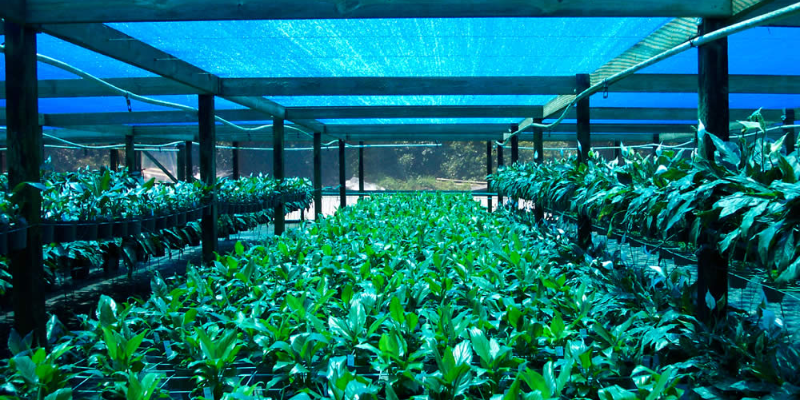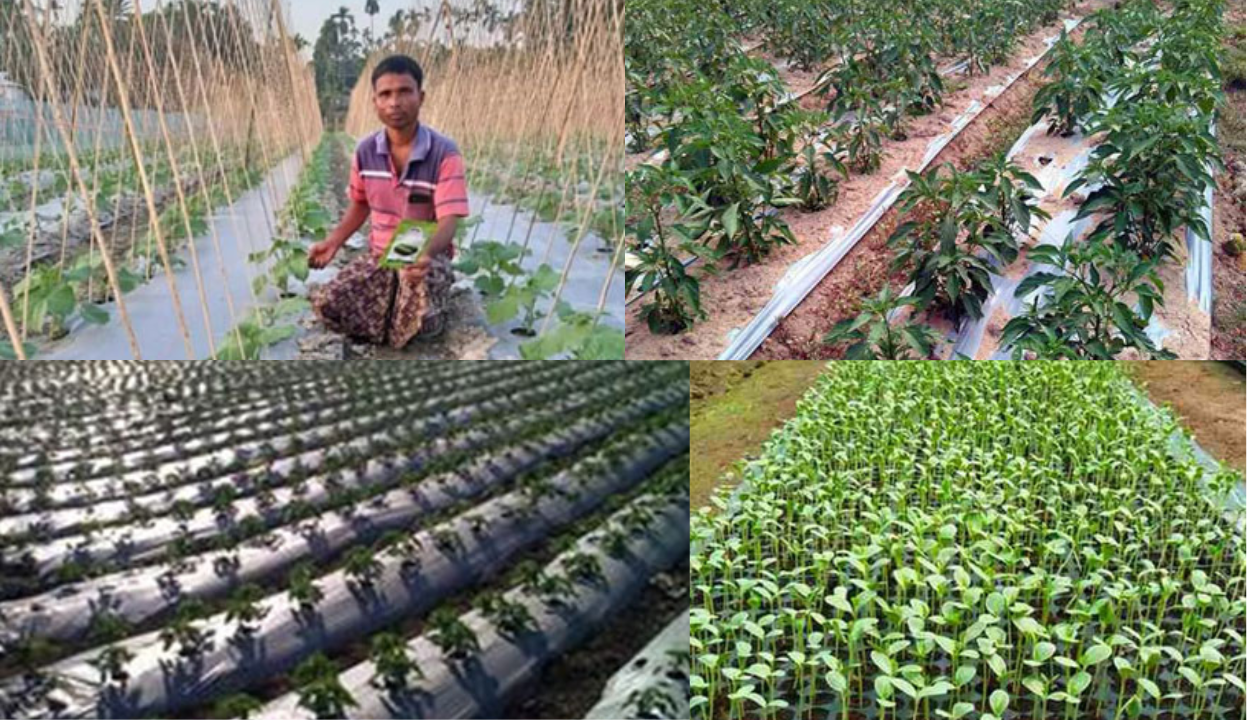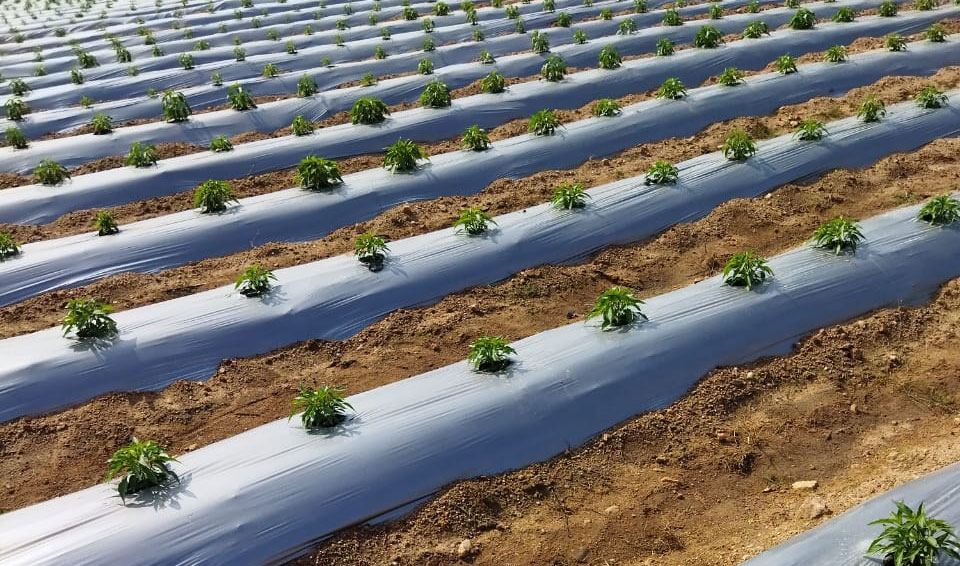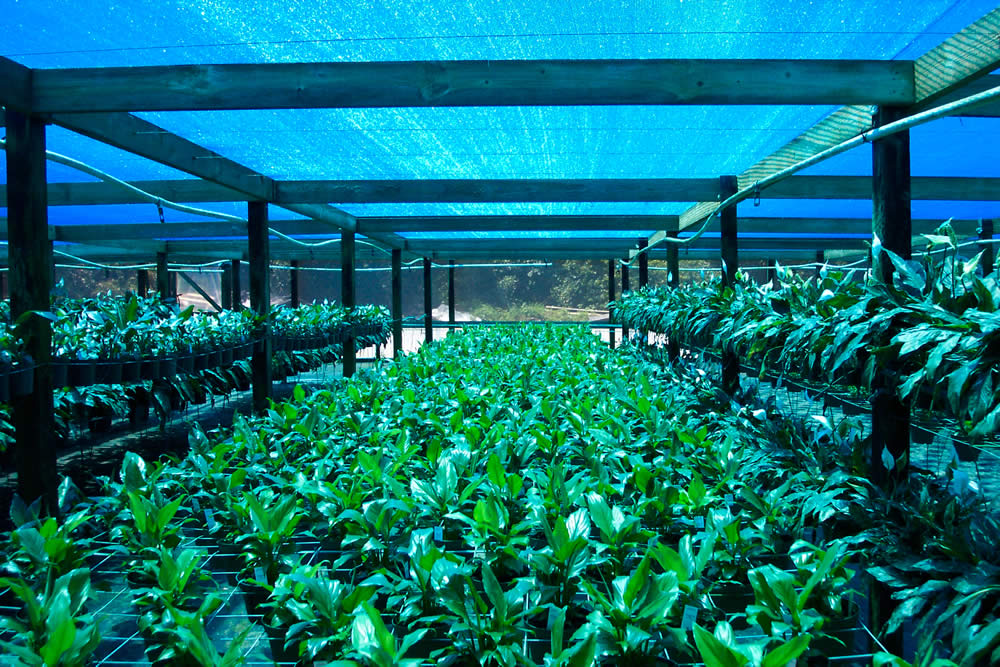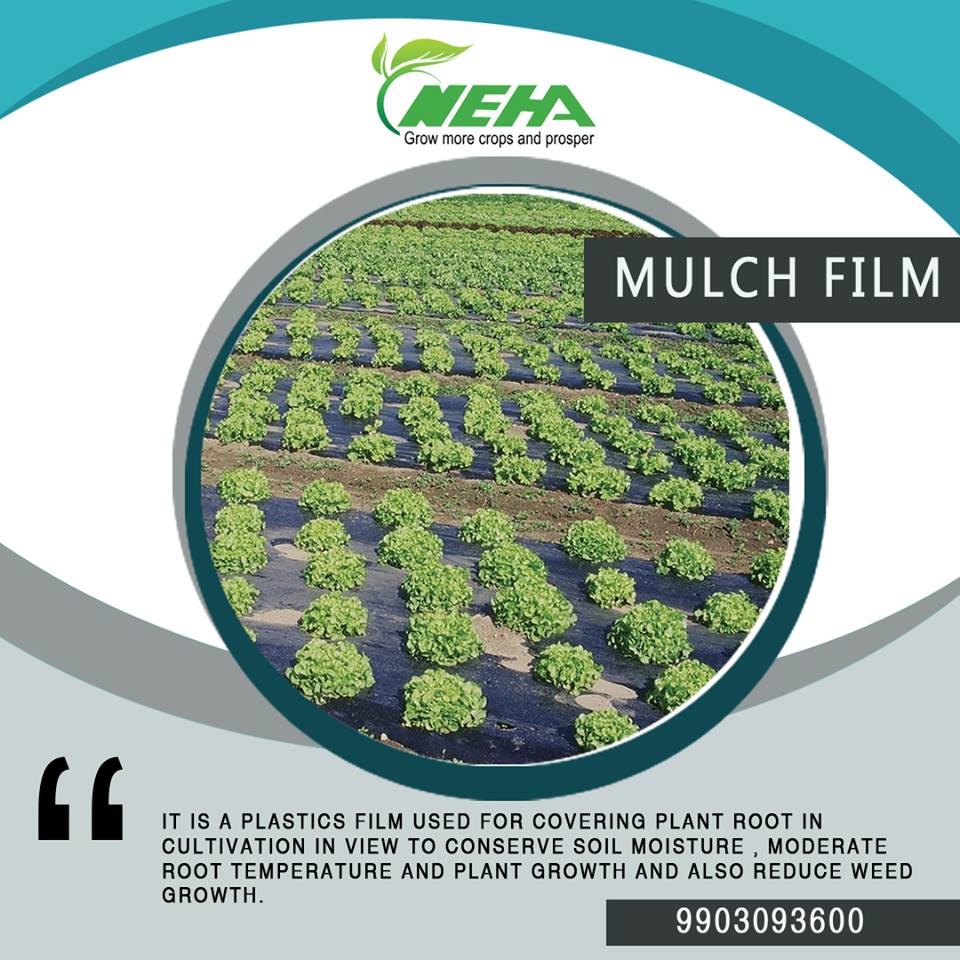
Uses of Mulch Film for Your Plants
Mulch is a protective layer made of compost which is applied on the surface of soil in order to protect it from erosion, conserve the moisture of soil, control weeds & maintain the temperature of soil. Neha shade nets which not only sells a variety of these but is also mulch film manufacturer.Mulch films which serve purposes similar to natural mulch are made of synthetic or inorganic materials. Mulch films are preferred over natural mulch since Mulch films are long-lasting & do not decay with time. Mulch films have proved to be very beneficial to farmers. They play a very important role in avoiding the spillage of water & fertilizers which saves a great deal of money. The type of mulch to be used varies from crop to crop. Therefore Mulch film manufacturer have come up with various different kinds of Mulches which are either made of plastic, or fabric, or stone, or rubber. Mulch films are mostly used in the cultivation of Watermelon, Chilli, Banana, Potato & Strawberry.
Read on to know about the uses & types of Mulch films in detail…
Uses of Mulch films –
1) Soil moisture conservation –
Much of the water provided to plants gets lost to the air around due to difference in temperatures (evaporation). Mulch films form an impediment between the cool earth & hot surrounding air. This helps in conserving the moisture of soil & also saves water.
2) Protection against weeds –
It’s difficult for weeds to sprout or grow in the presence of a Mulch film since the film forms a barrier between the earth & sun, thereby blocking sunlight from reaching the weeds.
3) Aesthetic look –
Mulch film makes the soil look evenly laid out. This combined with the destruction of weeds makes the crop area look very neat & appealing.
4) Better crop quality –
Ripened fruits & vegetables become vulnerable to rot when they come in contact with soil. The Mulch film prevents the fruits from touching the soil. Therefore, rotting of fruits is prevented, thereby giving a better quality of the produce. Mulch film is very much useful when growing Strawberries.
5) Protection during winters –
During winters, in cold areas, the ground tends to freeze which displaces plants from their position. Mulch films cannot prevent the freezing of the soil, but they hold the plants firmly in their positions.
6) Prevention of soil crusting –
When the soil is watered from a height, the soil particles tend to get sprayed out in different directions. This is called soil crusting & it reduces & slows down the soil’s water retention capacity. The presence of a Mulch film reduces the impact of the force & makes sure that water just trickles down slowly to the soil.
Types of Mulch films –
There are different types of Mulches made from different types of materials. You can check them out with the Mulch film manufacturer & find the right one with the right size for your crops:-
1) Plastic Mulch films –
Plastic Mulch films are made of Polyethylene. Plastic film helps in maintaining the temperature of soil & is very much useful if you are dealing with weed menace. When exposed to sunlight, plastic Mulch films deteriorate; hence they can be used for only one season.
2) Fabric Mulch films –
Fabric Mulch films prevent the growth of weed, & since they are porous, water & air can seep into the soil well. Fabric Mulches can be used for a long period of time without worrying about them wearing out.
3) Rubber Mulches –
Rubber Mulch films are made from the rubber of recycled tyres. Rubber Mulches last for a very long period of time, but it isn’t preferred very much due to the possibility of rubber making the soil toxic.
4) Stone Mulches –
Stone Mulches are made of gravel, chips of marble & volcanic ash. Stone Mulches don’t retain water, but they retain excessive heat which can damage the roots of plants. Stone Mulches if used are generally placed at a considerable distance from the plants.
Factors to be checked before going ahead with Mulch installation –
Before installing Mulch, the following precautions must be taken:-
1) Check the efficiency of soil drainage –
Make sure that the soil drainage capacity is good enough for the plants.
2) Compatibility of plants with the Mulch –
Do a good research on your plants & find out if they can survive well with the type of Mulch you’ve decided to use.
3) Space between Mulch & plants –
Make sure there’s enough place around your plants to place the Mulch.
Installation process of Mulches differs between crops & trees. A layer of Mulch is usually 3 to 4 inches thick. There’s a formula to calculate the amount of Mulch needed:-
Area of Mulch needed (in cubic yards) = amount of area to be covered (in square feet) X depth of required Mulch (in inches) X 0.0031.





